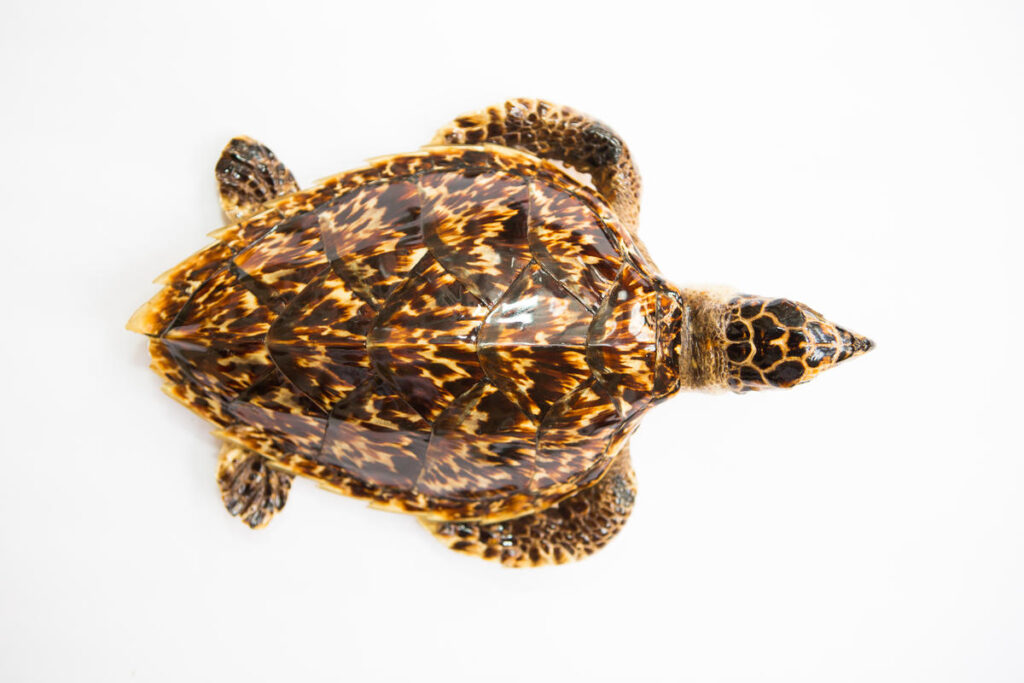Six of seven marine turtle species are listed from Vulnerable to Critically Endangered (IUCN Red List). Many factors contribute to this decline, but a significant concern is the ongoing legal and illegal unsustainable take, (by)catch and trade of marine turtles globally. Over the last 30 years, more than 1.1 million marine turtles have been illegally exploited. However, it remains unclear where this exploitation is occurring, where it is most prevalent today, and which populations are being targeted. ShellBank addresses this critical data gap, offering evidence-driven science to support targeted, effective conservation interventions that will benefit not only turtles but also the people who depend on them.

To identify and protect threatened marine turtles, ShellBank introduces a revolutionary solution – the world’s first traceability toolkit and global DNA database. It offers necessary tools for precise tracking and protection efforts – a holistic platform of capacity building, training, technical resources, support, and scientific guidance to conservation researchers and law enforcers worldwide. ShellBank identifies distinct genetic stocks, their interconnection, and those most at-risk and require greatest protection. By building ShellBank, conservationists, local communities and law enforcers have the best chance to recover threatened marine turtles trending towards extinction.
Our vision is for marine turtles to be traceable so we know which populations are most at-risk and those that require greatest protection.
Our goal is that by 2030, ShellBank will be enacted in at least 15 countries globally to trace, track and detect marine turtle populations most at-risk, so that targeted efforts are able to better enforce and protect them, turtle populations can rebound and communities benefit.
We will do this by enhancing marine turtle genetic traceability and data sharing to:
If ShellBank is implemented and embedded as common practice in at least 15 countries across the broader regions of Asia, Pacific, Africa, Mediterranean and Latin America, we can trace and track marine turtle populations and their connectedness globally to detect those most at-risk, so targeted efforts can ensure greater protection is put in place to address unsustainable use, trade and bycatch, and turtle populations can rebound, and coastal communities benefit.
Marine turtle conservation is facing significant challenges due to data and knowledge gaps in tracking and tracing populations. Despite over 50 years of research, genetic studies were scarce, and existing data were often unpublished or isolated on personal computers. This fragmented approach hindered understanding of turtles’ genetic diversity and migration. ShellBank rapidly accelerates this process by enhancing targeted sampling and analysis, thus accelerating the creation of a comprehensive genetic database. It fosters collaboration among stakeholders to address data deficiencies, making conservation efforts more coherent and effective. ShellBank’s innovation is pivotal in crafting global, data-informed strategies for marine turtle conservation.
Find out more about our interim objectives and impacts on our latest Annual Report.